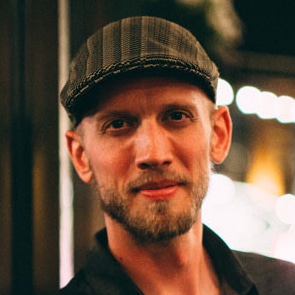Centering education in diabetes care
Fact checked by Shannon Sparks
If left untreated, diabetes can lead to serious complications, including heart disease, vision loss, kidney disease, nerve damage, and stroke. That’s a harsh reality for the 1 in 10 Americans — nearly 38 million people — who have diabetes.
But those complications don’t happen overnight. Diabetes develops over years of choices related to food, physical activity, medication, and habits. While treatments have advanced, diabetes education remains one of the most powerful tools for preventing complications and improving quality of life.
Education is also one of the most underutilized resources. “Many patients already know or can quickly pick up on the basics. The real work is helping them fit those changes into busy, stressful lives,” says Santina Wheat, MD, a primary care physician at Northwestern Medicine Regional Medical Group.
A landmark clinical trial known as the Diabetes Prevention Program (DPP), funded by the National Institutes of Health, showed that people with pre-diabetes could reduce their risk of developing type 2 diabetes by 58% through lifestyle changes alone. That number rose to 71% for participants over age 60. The program emphasized modest weight loss, healthier eating, and increased physical activity. A separate group that used a common diabetes medication (metformin) only saw a 31% risk reduction, highlighting the broader impact of lifestyle change across age and racial groups.
Two decades later, follow-up data from the program’s outcomes research confirmed that lifestyle-related benefits persist. Participants in the lifestyle group not only had a significantly lower rate of diabetes development but also gained several years of diabetes-free life on average. These findings have influenced national guidelines and led the Centers for Disease Control and Prevention to develop the National Diabetes Prevention Program, which supports community-based and clinical education initiatives.
In addition to prevention, education also helps people with diabetes understand how food affects blood sugar, how to manage medications, and how to respond to warning signs. It can lower blood sugar levels, reduce hospitalizations, and build confidence — whether navigating supermarket aisles or grabbing takeout.
Making education simple
Physicians typically screen patients who are predisposed to diabetes — those who are overweight or obese, have a family history of the disease, or belong to higher-risk populations (such as African-American or Latino communities). Elevated A1C (blood sugar) levels may also prompt nutrition counseling and dietitian referrals.
Wheat says the priority is making education practical. That could mean cutting back on sugary drinks, switching from white to brown rice, or learning to read nutrition labels. Depending on patient needs, Northwestern offers both in-person and telehealth educational sessions.
She also says that small, repeatable adjustments tend to be the most sustainable. “If my patients can continually make small, repeatable changes, they’re more likely to make those changes sustainable,” she says.
Duly Health and Care delivers diabetes education through both individual counseling and group classes. The American Diabetes Association has recognized the program, which covers nutrition, exercise, medication, glucose monitoring, problem solving, emotional health, and reducing complication risks.
Mary Buescher, a registered dietitian and certified diabetes care and education specialist at Duly, emphasizes goal-setting and consistent follow-up. “Education is not a one-time event,” she says. “Patients come back for multiple sessions, set measurable goals, and build skills gradually.”
In 2024, 88% of participants in Duly’s diabetes education program showed a drop in their A1C levels, with an average reduction of 1.97%. Additionally, 83% were still meeting their nutrition goals, and 60% were meeting their physical activity goals three months later.
Duly’s culinary medicine program also stands out. A team of physicians, dietitians, and chefs lead cooking classes in a shared medical appointment format that promotes Mediterranean-style eating. The team encourages participants to adapt healthy habits to their own cultural and family traditions.
After completing the cooking sessions, participants move on to group classes that reinforce key topics: meal planning, budgeting, food label reading, reducing food waste, and increasing vegetable intake.
Buescher says demand is high. Duly has started reserving appointments for high-risk patients and is exploring virtual options to expand access.
Comprehensive focus
On Chicago’s West Side, Sinai Chicago integrates diabetes education into a broader medical model. In late 2024, the hospital launched its Weight Wellness Program through its Center for Diabetes and Endocrinology. The program addresses obesity and diabetes together, connecting patients with a coordinated care team that includes endocrinologists, registered dietitians, behavioral health professionals, and pharmacists.
Participants set personalized goals related to weight, movement, and medication. They also receive culturally and socioeconomically tailored nutrition counseling and structured follow-up. For patients experiencing food insecurity, Sinai partners with local organizations to deliver medically appropriate groceries.
“Every plan starts with the patient’s priorities,” says Mahwash Siddiqui, MD, division head of endocrinology at Sinai Chicago and the leading physician who initiated the program. “It is about integration. People feel seen and supported in the process.”
Within seven months, the program drew strong community interest and received more than 200 referrals. Patients are now booking appointments months in advance, and Sinai plans to expand the initiative further to meet this growing demand.
Originally published in the Fall 2025/Winter 2026 print issue.

Dan Dean is a writer, cancer survivor, and founder of Cancer Dudes, which supports men after being diagnosed with cancer.












